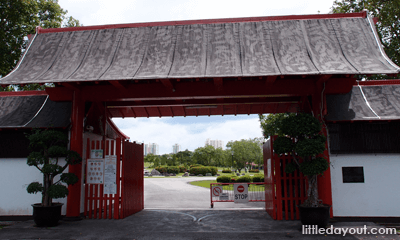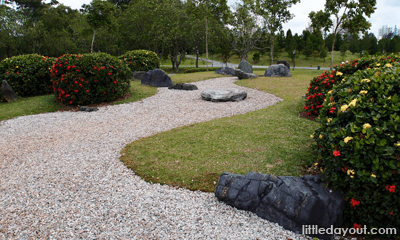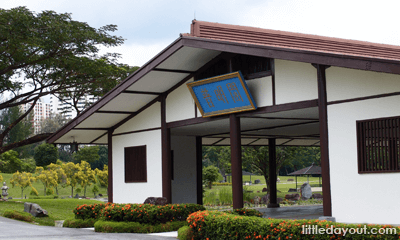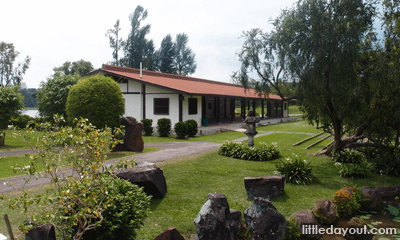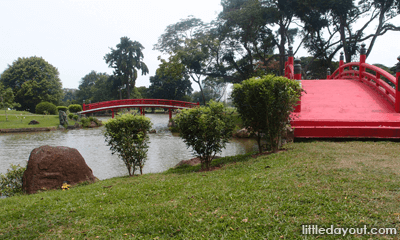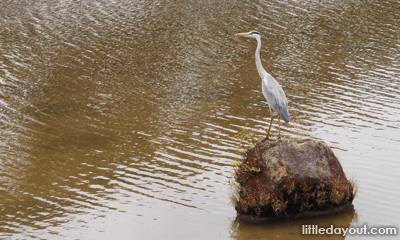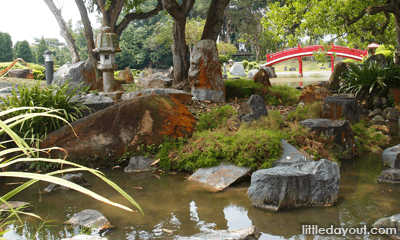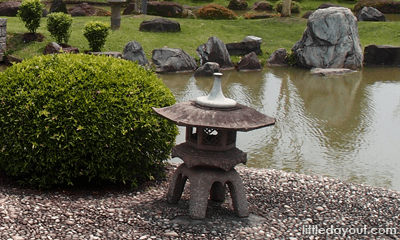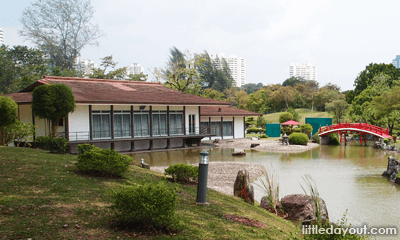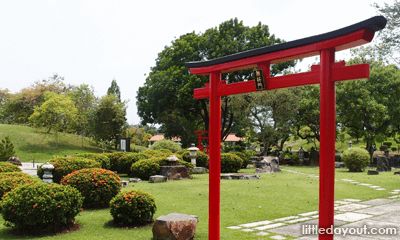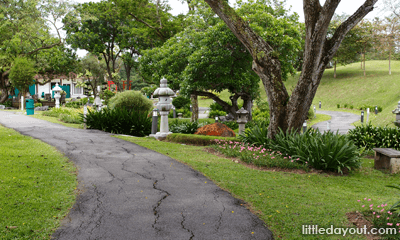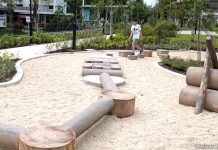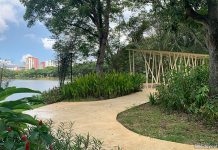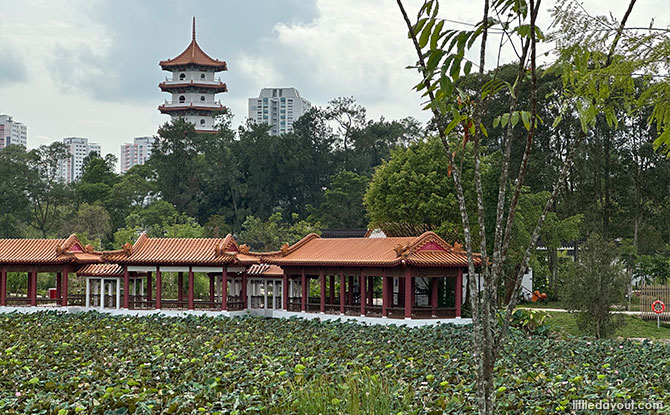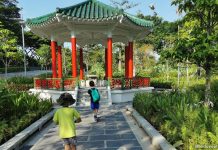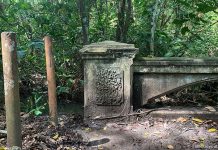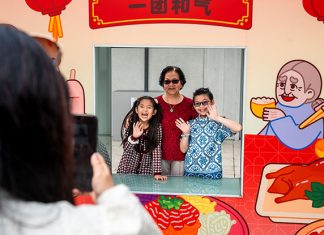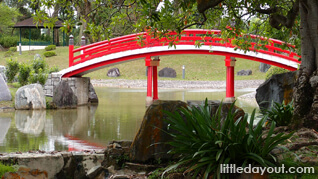
The Japanese Garden, or Saiwaen, is set on an island in the middle of Jurong Lake. Opened in 1973, this well-manicured garden is less explored and more compact than its sister garden next door, the Chinese Garden.
Arriving at the main entrance, visitors step through a traditional gate which sets a rustic tone for the rest of the Garden. On the other side of the gate is the Dry Garden with pebbled-grounds and well-kept hedges.
The Rest House at The Japanese Garden
Past the Dry Garden is a traditional Japanese Rest House. This open structure is set against the backdrop of a lotus-draped pond. A white stone bridge and red wooden bridges span the pond gracefully, leading to sheltered pavilions on the other side. Kids will enjoy clamouring over the arch of the bridges and making their way from one side of the pond to the other.
The Japanese Garden is also a fauna sanctuary so do not be surprised if you see migratory birds on your visit. Keep a lookout and you may be surprised by what you can spot while on your visit.
Stone Lantern Valley
Heading away from the Rest House, a pathway to the left leads to the Stone Lantern Valley. A gentle stream follows the pathway towards to the pond at the far end. Little stepping-stones that have been set into the stream allow young ones to skipping across the little brook.
At the Stone Lantern Valley, you will find different types of Japanese lanterns. Here, you can play a game with your kids. See if they can identify the different lanterns that can be found in the surroundings. The lanterns that can be found here include the Snow Viewing Lantern (which has a wide-brimmed roof to collect snow), the Buried Lantern (which does not have a base and is buried into the ground) and the Pedestal Lantern (which are usually the focal point of a garden landscape).
Japanese Guest House
Beyond the Stone Lantern Valley is a traditional Japanese Guest House. Set by a pond, you can only walk around it and cannot go in. Just behind the Guest House, you will also find the bridge that links the Japanese Garden to the Chinese Garden.
Two bright red Torii Gates, commonly found at the entrance of Shinto shrines, also stand near the Guest House.
From the Guest House, it is a short walk back to the main entrance, or if you feel like exploring some more, you can head over to the Chinese Garden.
Wander to Wonder
What we like about the Japanese Garden is that it is less crowded compared to the Chinese Garden. As it is a compact garden, it is an easy place for families with toddlers to wander around. The gentle terrain also has some small hills and slopes which slightly older explorers can scramble up and down to explore. We hope that you also have an enjoyable time exploring the Japanese Garden on a Little Day Out!


